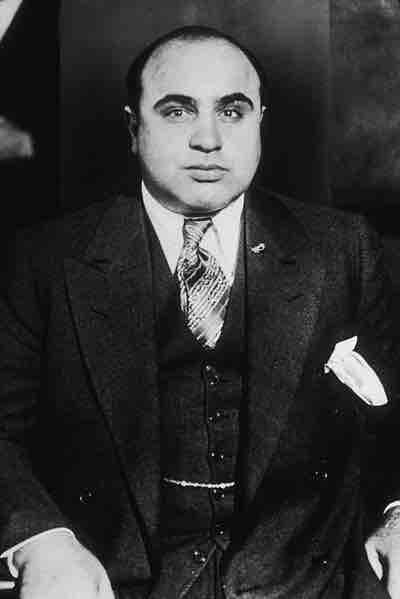Ethics of Persuasion
Not all persuasion is ethical. Persuasion is widely considered unethical if it is for the purpose of personal gain at the expense of others, or for personal gain without the knowledge of the audience. Furthermore, some methods of persuasion are wholly written off as unethical. For example, coercion, brainwashing, and torture are never considered ethical .

Al Capone
Al Capone, an American gangster in the early 20th century, used coercion as a persuasive technique, which is unethical.
Barring any of the persuasive methods that are easily distinguished as unethical (such as torture), the line between ethical and unethical is less clearly demarcated. Ethical persuasion has a series of common characteristics that are missing in unethical persuasion. Ethical persuasion seeks to achieve the following three goals:
- Explore the other person's viewpoint
- Explain your viewpoint
- Create resolutions
Notably, this approach involves input from the audience and an honest explanation of your viewpoint. If you have questions about the ethics of a persuasive attempt, there are a number of tests that can be done.
TARES Test
Sherry Baker and David Martinson proposed a five-part TARES test to help guide the PR practitioner to define ethical persuasion. An ethical persuasive speech must have all of the following components:
- Truthfulness of the message
- Authenticity of the persuader
- Respect for the audience
- Equity of the persuasive appeal
Fitzpatrick & Gauthier
Fitzpatrick and Gauthier developed a series of questions that must be honestly answered to determine how ethical a pitch is:
- For what purpose is persuasion being employed?
- Toward what choices and with what consequences for individual lives is persuasion being used?
- Does the persuasion in this case contribute to or interfere with the decision-making process for its target audience?